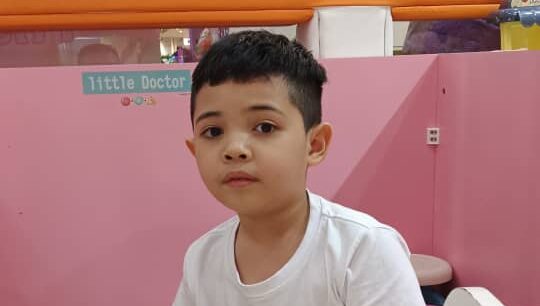
Every child’s journey is different, and for our son Rays, the early years came with their own set of challenges that shaped how we learned to support and grow with him. In those early days, he showed behaviours that made us pause—he didn’t respond when we called his name, had difficulty communicating, and would often flap his hands. Managing his emotions was challenging, and daily routines like toileting were unpredictable.
As parents, it was a time filled with questions. We didn’t always know what to expect or how to help. But slowly, through conversations with doctors, kind advice from friends, and our own reading and reflection, we were guided toward the right kind of support.
Since then, Rays has made steady progress. He’s more attentive now, with better eye contact and the ability to focus during conversations. At home, he can follow simple instructions and even lend a hand when asked. He’s able to manage himself much better, including staying dry throughout the day. His speech is clearer too—still short, but with more meaning behind the words.
There are things he says now that we once didn’t expect to hear. “Sayang Mummy.” “Sorry Mummy.” “I want my mummy.” Simple phrases, but deeply meaningful in their own way. These are the kinds of changes that stay with you, long after the moment has passed.
He’s also able to put on his shoes without help, and loud noises no longer unsettle him the way they used to. When he becomes upset, he now responds to comfort and guidance more easily. These may seem like small things from the outside, but for us, each one reflects growth.
To parents who are just starting on this path: explore every option, and don’t be afraid to bring your child out into the world. Let them experience what other children do. Listen to the professionals, but also learn from your child. Be involved, be patient, and try to understand the world from their side. Create routines, limit screen time, and include time for faith and reflection—it helps bring balance to the journey.
Rays continues to teach us every day. His progress reminds us that development doesn’t always follow the usual timeline—but it comes, often in the most meaningful ways.